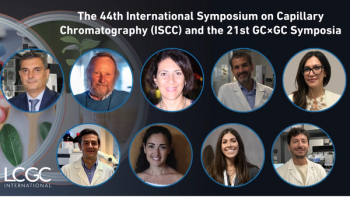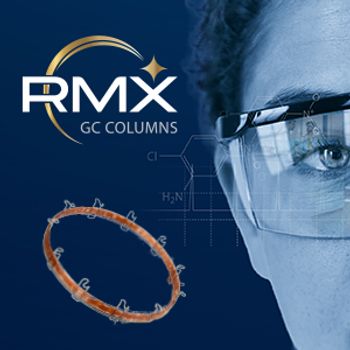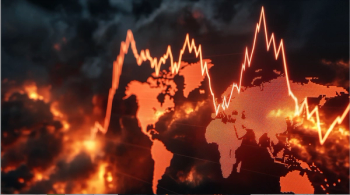
- LCGC North America-09-01-2009
- Volume 27
- Issue 9
Get Involved!
John Hinshaw takes a break from the technical and visits a number of chromatography forums and discussion groups.
To much the same degree as in any other technical field, as the global economy shrinks and metamorphoses, chromatographers are challenged by the changing professional landscape. Although the overall unemployment rate among chemists who responded to an American Chemical Society (ACS) survey remained quite low at 2.3% in 2008 (1), beneath the surface of these corporate sea-changes are the recently unemployed, recently employed, or still employed technical professionals. The recent announcement of the pending acquisition of Varian, Inc. by Agilent is the most dramatic shift in the analytical instrument business so far this year; eventually, the changes that result will impact a large number of analysts.
John V. Hinshaw
I was unable to find any published job-change data for analytical chemists, but the number of analysts who have changed jobs recently, either internally or by moving to a different company, was made evident to me informally when I belatedly got around to sorting through my pile of new business cards acquired at conferences and during business trips. While entering what seemed like many more corrections and updates to my address book than I had expected, I asked myself how individuals whose affiliations and email addresses change might keep in touch with other professionals.
One answer is online professional networking sites like LinkedIn (
Chromatography Discussions
While sites like LinkedIn provide a convenient contact point for professional networking, those analysts who want to engage in more detailed discussions of their workplace technologies, learn more about parallel or related techniques, or just want to follow interesting message threads can turn to a number of topical online discussion forums. Chromatographers in particular can make good use of the Chromatography Forum (
Face-to-Face
LinkedIn and the Chromatography Forum are two examples of virtual meeting places. None of these, however, can provide the face-to-face contact offered by getting involved with and attending meetings of the various societies and forums for chromatography and analytical chemistry that exist around the U.S. and also overseas. These are topical associations that were formed long before the Internet existed. Some have only a local scope, while others attract regional participation and some have gone international. A number of them are listed in Table I. Most are in the U.S., but there are a few with overseas affiliation as well.
Table I: Chromatography discussion groups
Corporate travel funding is still on the decline, but many of these groups are located near major metropolitan centers, which makes it easier to attend a meeting without a lot of travel. Some hold teleconferenced meetings as well, which are richer and much more interactive than just posting comments on a web page — the discussions are live and feedback is immediate — but these still do not approach the quality interaction of a live face-to-face meeting. Many of the chromatography forums host short courses and symposia at national meetings held by organizations such as Pittcon and the ACS. Several of the discussion groups are affiliated with local ACS sections. In the Analytical Division of ACS itself, the Subdivision of Chromatography and Separations Chemistry (SCSC) actively arranges symposia and administers an annual award in separations–chromatography, as also does the Analytical Division. All of this activity makes it easier to combine an annual major conference trip with some chromatography forum business.
CASSS (formerly the California Separations Science Society) is arguably the largest and most active of the chromatography forums, claiming over 4000 members in 2009. CASSS organizes a large number of chromatography and separations conferences in the U.S. and internationally as well: eleven alone from September 2009 through June 2010. They also host a regular discussion group in the San Francisco area, have online employment listings, and publish a newsletter, the Retention Times, with topical articles, announcements, and editorials. The other societies listed in Table I are also very active on a local and regional basis.
The list of chromatography discussion groups and related professional societies that appears in this article are available online at
The GC Connection
These days, chromatography discussions seem dominated by LC topics, but many of today's forums had their beginnings in GC. A few years after the start of the rapid rise of GC in the mid-1950s, early GC practitioners began to organize forums that would meet several times in a year for the exchange of ideas and results, and that would be less formal than the large scientific meetings while allowing ample opportunity for discussions, tutorials, and workshops. The Chromatographic Society was the first, organized as the Gas Chromatography Discussion Group in Great Britain in 1956 with A.T. James as Chairman and Dennis Desty as Secretary. The Chromatographic Society is very active today, and at 53 years, is the oldest as well as the first. The Chromatographic Society grants the Martin and Jubilee Medals in Chromatography.
Founded five years later in 1961 by several GC pioneers, the Chicago Chromatography Discussion Group was the first such in the U.S. It is very active today, holding several dinner meetings a year, and sponsoring short courses and scholarships. The Chromatography Forum of Delaware Valley (CFDV) also was one of the first, founded in 1966 as the Delaware Valley Gas Chromatography Forum, to "foster a spirit of fraternity among those engaged in chromatography work and to promote their educational and professional development" (2). The CFDV meets 10 times a year and sponsors short courses in chromatography at national meetings, as well as several awards.
Cross Training
While gas chromatographers were the first to incept local chromatography forums and discussion groups, as time has passed, it seems that the gas chromatographers are more likely to retire from their positions first, compared to those trained later in other chromatography disciplines. These days, skilled GC practitioners are spread thinly in many labs that continue to require high GC throughput. As a result, many analysts in related chromatography disciplines find they need some cross-training to become familiarized and competent with GC techniques. The short courses, seminars, and discussions sponsored by the chromatography forums locally and at national meetings are an excellent way to broaden technical skills as well as to keep up to date with the latest developments.
When it comes time to update a resume, extra experience and skills gained outside of a narrow discipline can make a big difference. Belonging to a technical discussion group, participating in its activities, and garnering the support of fellow chromatographers helps a job candidate to stand out from the rest.
Get Involved!
Although it is not clear at this time whether chemists in general, and chromatographers in particular, have reached or will reach the level of unemployment that now affects the economy in general, it seems obvious that all chromatographers can benefit from association with their fellow analysts. The opportunities for meeting and exchanging information with members of the international chromatographic community run from joining an online discussion group and finding answers for a work-related technical question to becoming an active member of a local chromatography discussion group and getting involved with organization, teaching, writing, speaking, or administration. Even if you just want to learn something new without having to give back, the members at large in the forums and discussion groups will be happy to lend you a hand.
John V. Hinshaw "GC Connections" editor John V. Hinshaw is senior Research Scientist at Serveron Corp., Hillsboro, Oregon, and a member of LCGC's editorial advisory board. Direct correspondence about this column to "GC Connections," LCGC, Woodbridge Corporate Plaza, 485 Route 1 South, Building F, First Floor, Iselin, NJ 08830, e-mail
References
(1) D.J. Hanson, Chem. Eng. News 87(10), 36–40 (March 9, 2009).
(2) M.E.P. McNally and W.L. Champion "A Brief History of the Chromatography Forum of Delaware Valley," found at
Articles in this issue
over 16 years ago
Method or System?over 16 years ago
Standardizing Proteomics: Results of a Collaborative Studyover 16 years ago
Highlights of HPLC 2009over 16 years ago
Short Coursesover 16 years ago
My 50+ Years in Chromatographyover 16 years ago
Calendarover 16 years ago
Everything is CyclicalNewsletter
Join the global community of analytical scientists who trust LCGC for insights on the latest techniques, trends, and expert solutions in chromatography.




